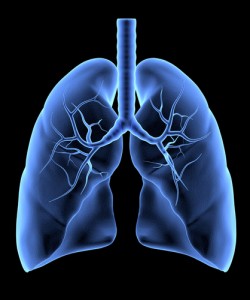 The American Society for Radiation Oncology (ASTRO) recently commended the Centers for Medicare and Medicaid Services (CMS) for agreeing to provide annual screening coverage for lung cancer with low dose computed tomography (LDCT) for people at high risk.
The American Society for Radiation Oncology (ASTRO) recently commended the Centers for Medicare and Medicaid Services (CMS) for agreeing to provide annual screening coverage for lung cancer with low dose computed tomography (LDCT) for people at high risk.
In a recent memo report, CMS stated that clinical evidence is satisfactory to add lung cancer screening counseling and shared decision-making visits to Medicare coverage, and annual screening for lung cancer with low dose computed tomography (LDCT) for those at higher risk of the disease.
According to the memo, patients meet the criteria for screening if they are aged between 55 to 77 years with no current signs or symptoms of lung disease, a history of smoking of at least 30 pack-years, and if they are current smokers or quit within the last 15 years.
“CMS has taken a bold step that can potentially reduce the lung cancer mortality of patients at highest risk for lung cancer by nearly 20 percent. We are grateful for the additional opportunities that annual screening provides us to save hundreds of thousands of lives from lung cancer,” said ASTRO Chair Bruce G. Haffty, MD, FASTRO in a recent news release. “This year in the United States, it is estimated that nearly 230,000 men and women will be diagnosed with lung cancer, and that there will be more than 160,000 deaths from lung cancer, more deaths than from breast, colon and prostate cancers combined. This highly effective, annual screening is a critical and powerful tool that will enable us to diagnose patients earlier when treatments are most effective, and it will fortify our efforts to battle this destructive disease.”
[adrotate group=”1″]
The final decision for eligibility demands that prior to the first screening, the clinician and the patient need to have made a decision about access to smoking cessation strategies along with smoking cessation sessions for current smokers.
Moreover, the CMS states other screening guidelines include the administration of a CT dose index volume of 3 mGy or less for standard sized patients; decreased doses for smaller patients; and increased doses for larger patients, which clinicians should use upon assessment of standardized lung nodule identification. In addition, the CMS requires that the patient’s clinical file should be submitted to a CMS-approved registry for each LDCT screening test.
In December 2013, the United States Preventive Task Force recommended that LDCT as a Grade B screening. This recommendation was based on data from randomized controlled trials involving more that 50,000 adults with no signs or symptoms of lung disease, revealing that those who underwent screening had a 16% reduction in mortality compared to those who did not receive screening.


